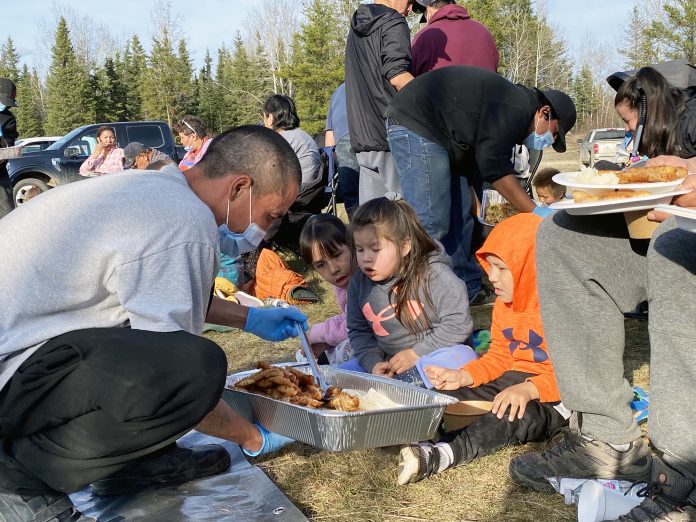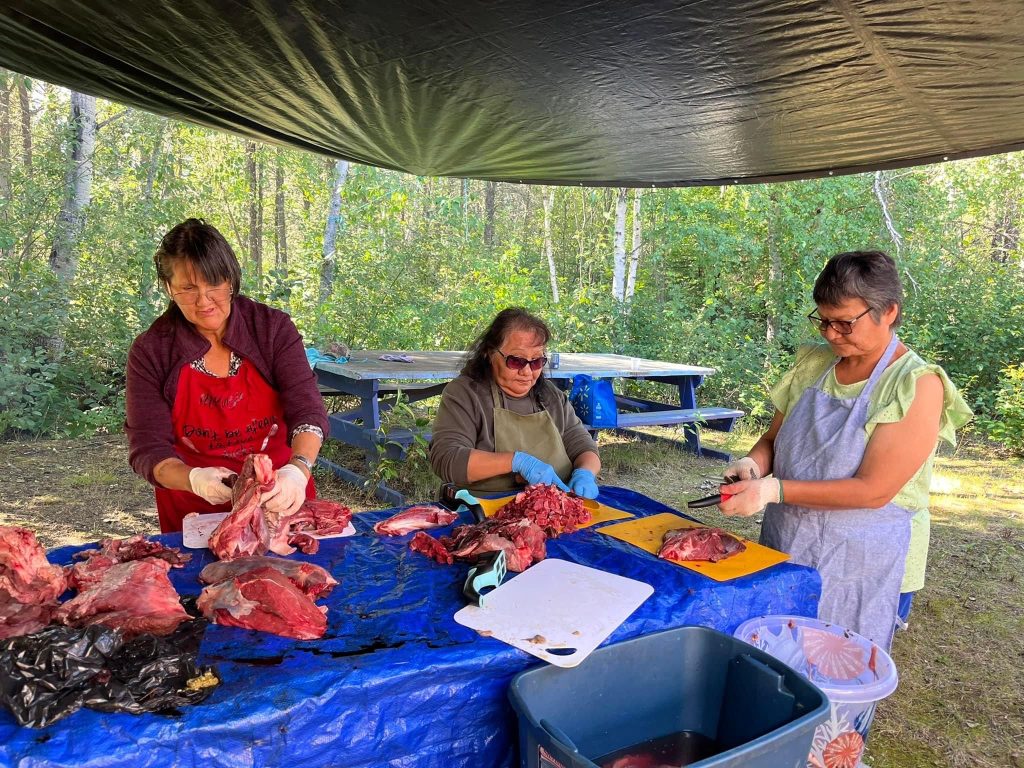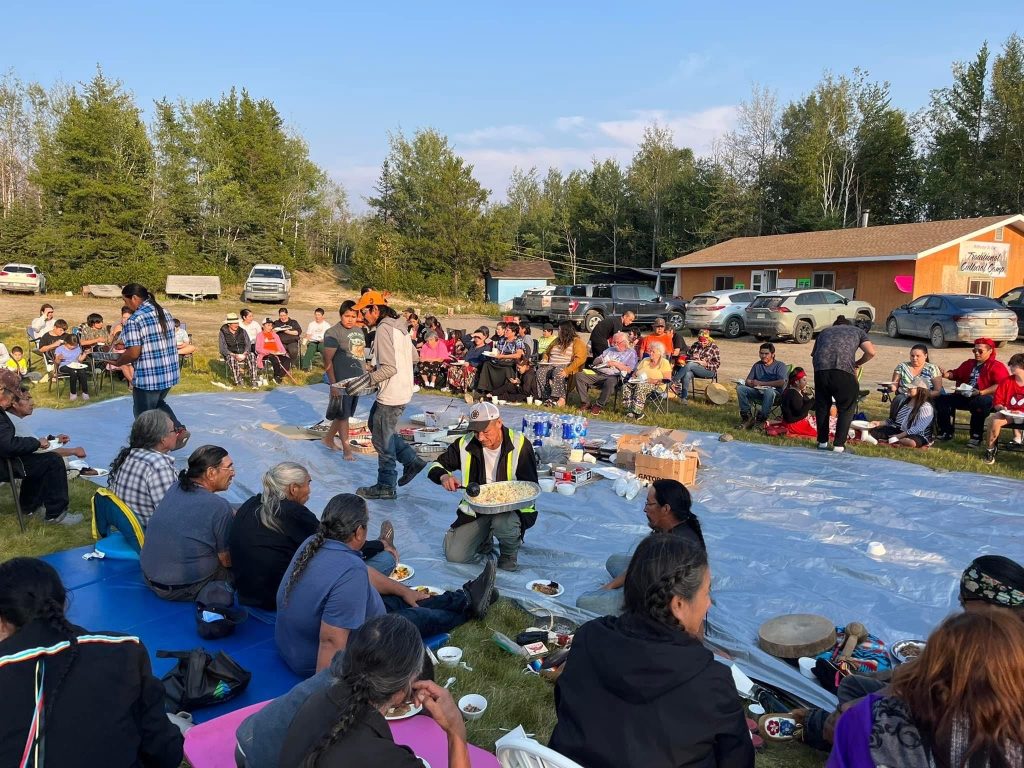
Valerie G. Barnes Connell Jordan
Northern Advocate

After almost 30 years, organizers said, “It’s your turn now,” to Asa Ballantyne, who co-ordinated the Amachewespimawin Stanley Mission Traditional Healing Spring Culture Camp in May and the 29th Annul Traditional Healing Cultural Camp Aug. 18 through 21.
The camp in May was shorter and held partly make up for the 2021 Camp which was postponed several times, then cancelled because of the Pandemic.
Suicide was an “epidemic” during the 1980s and early 90s in Stanley Mission, and even the focus of some CBC broadcasting, Robert Ballantyne, one of the initiators of the camp, said.
The first camp was held as part of a suicide prevention program developed in 1993 for by the Stanley Mission health department with the director, Sol Charles, Robert Ballantyne as youth co-ordinator and Larry Laliberté as co-ordinator.
Through the program, Elders from other communities, provinces and parts of the world were brought in the assist the and teach the traditional protocols and customs and the rates of suicide dropped over the life of the program, which ended in 1997.
The camp was run independently for several years, but people are “coming around,” including the leadership and the camp is now back under the auspices of the Stanley Mission health department.
The traditional camp continued to this day and has been held annually with Elders and guests coming from the community and farther afield.
It has taken much hard work and dedication over the years to keep the camp, which is held on the traditional camp site, which now involves a central area where traditional teepees rise over the site, a building, cooking area and gathering spaces.
Each day starts with a Pipe Ceremony and traditional teachings. Throughout the day, there are sweat ceremonies, traditional healings, and opportunities to learn about traditional food preparation, medicines, the opportunity to visit with Elders, old and newer friends, share in meals with a focus on traditionally prepared food.
The camp ended with a traditional feast, recognition of those who assisted in the camp, such as Elders, fire keepers, cooks – anyone who helped in any way, is honoured.
The camp and ceremonies are important, Robert Ballantyne said, because the healers and leaders are out there, but don’t know it always, because of “a lot of the medicines that we have, came from our ancestors, the ones that were forced to give up their bundles. A lot of those bundles were not lost, they were suspended … that’s what I mean. We need to awaken our medicine people, our healers. It is a challenge trying to heal … to recognize the impact of the Residential Schools, that it’s still affecting us.”
And a traditional giveaway and Round Dance completed the four-day ceremony. Karen Charles and Councillor Linda A. Charles also organized the camp for many years.
For Asa Ballantyne, it’s coming home. The camp represents how he grew up going to ceremonies and the culture camp – “I consider it my home.”
He said he wants own two sons and other children to grow up seeing the things he grew up with continue.
“I’m happy to see my younger brother starting off where I started off and it’s so nice when everyone is getting together, getting along. It works out good. It’s a community here, our own little community. This is a beautiful way of life. I feel so fortunate to have been brought up this way.”
With the elders and knowledge keepers coming together, there is always something, a new teaching, something to take away from the camp, to make life better throughout the coming months and years.


